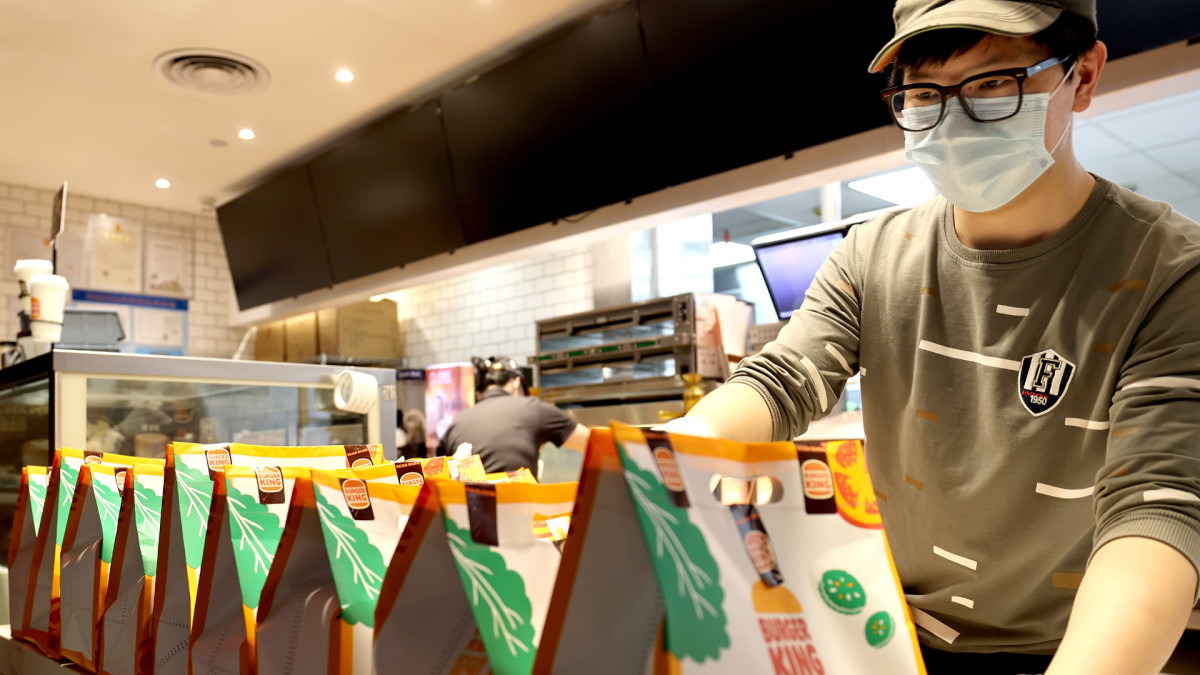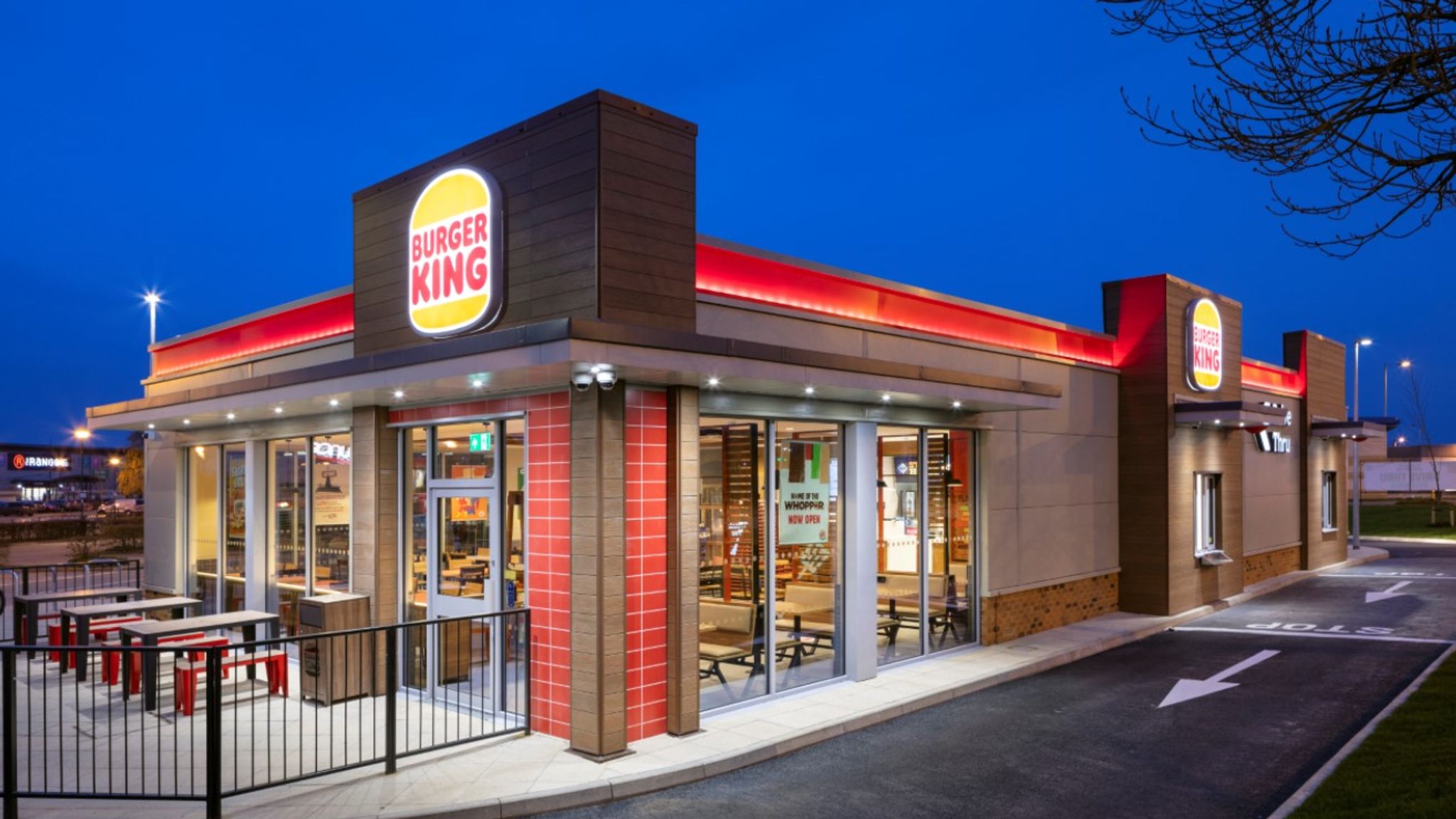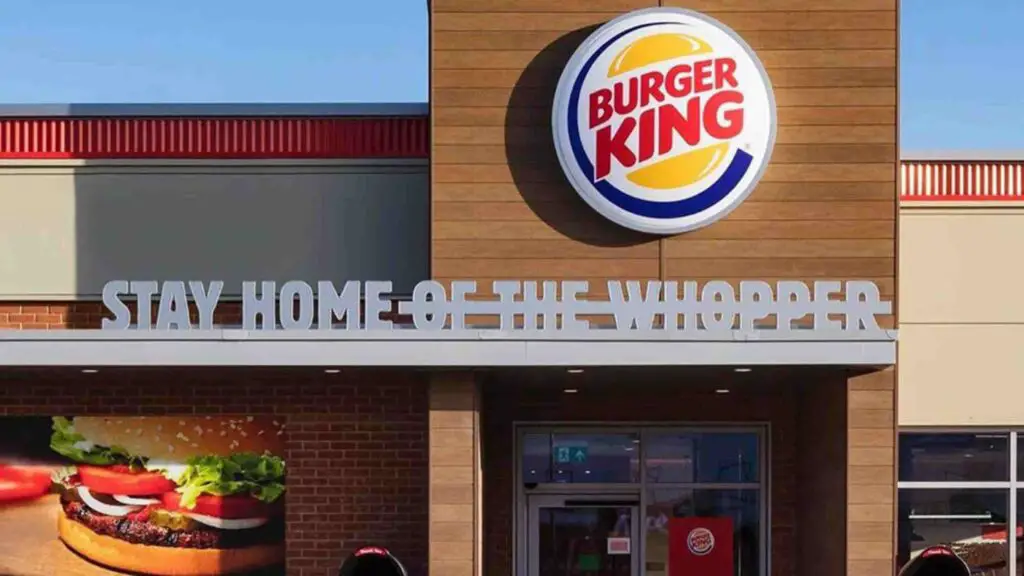Burger King Closes Hundreds Of Locations Nationwide
Who would've thought that Burger King, a fast-food giant, would be closing stores?
Burger King, a pillar of the fast-food industry, has recently announced the closure of several of its stores. This move has sent shockwaves through the industry, leaving many to wonder about the reasons behind it and its potential impact.
There are several factors contributing to Burger King's decision to close stores. One major factor is the changing consumer landscape. Consumers are increasingly opting for healthier and more convenient food options, leading to a decline in demand for traditional fast food. Additionally, the rise of delivery services has made it easier for people to get food from a wider variety of restaurants, which has put pressure on fast-food chains like Burger King.
- Wentworth Miller Wife And Kids
- Zooemoore Leaked
- Bill Kaulitz Partner
- Joe Cole Actor Partner
- Edgar Ramirez Wife
The closure of Burger King stores is a significant event in the fast-food industry. It highlights the challenges that traditional fast-food chains are facing in the current market. It also underscores the need for these chains to adapt to changing consumer preferences and the evolving food delivery landscape.
Burger King Closing Stores
Changing Consumer Preferences
Consumers are increasingly opting for healthier and more convenient food options. This is leading to a decline in demand for traditional fast food, which is high in calories and fat.
Rise of Delivery Services
The rise of delivery services has made it easier for people to get food from a wider variety of restaurants. This has put pressure on fast-food chains like Burger King, which have traditionally relied on dine-in customers.
- Sara Haines Twin
- Maligoshik Leaked Onlyfans
- London Breed Husband Picture
- Hanna Uwu Leak
- John Heilemann Cancer
Increased Competition
The fast-food industry is becoming increasingly competitive, with new chains emerging all the time. This is making it more difficult for Burger King to stand out from the crowd.
Conclusion
The closure of Burger King stores is a sign of the times. Consumers are changing their eating habits, and the fast-food industry is having to adapt. Burger King is not the only fast-food chain that is facing challenges, and it is likely that we will see more closures in the future.
Burger King Closing Stores
The closure of Burger King stores is a significant event in the fast-food industry. It highlights the challenges that traditional fast-food chains are facing in the current market. It also underscores the need for these chains to adapt to changing consumer preferences and the evolving food delivery landscape.
- Changing Consumer Preferences
- Rise of Delivery Services
- Increased Competition
- Financial Struggles
- Operational Inefficiencies
- Negative Publicity
- Shift in Market Trends
These key aspects are interconnected and have contributed to Burger King's decision to close stores. For example, changing consumer preferences have led to a decline in demand for traditional fast food, which has put pressure on Burger King's financial performance. Additionally, the rise of delivery services has made it easier for consumers to get food from a wider variety of restaurants, which has increased competition for Burger King.
Burger King is not the only fast-food chain that is facing challenges. Other chains, such as McDonald's and Wendy's, have also closed stores in recent years. This trend is likely to continue as the fast-food industry continues to evolve.
Changing Consumer Preferences
Changing consumer preferences are a major factor contributing to Burger King's decision to close stores. Consumers are increasingly opting for healthier and more convenient food options, leading to a decline in demand for traditional fast food.
- Healthier Options
Consumers are becoming more health-conscious and are seeking out healthier food options. This is leading to a decline in demand for traditional fast food, which is high in calories, fat, and sodium.
- Convenience
Consumers are also increasingly valuing convenience. They want food that is quick and easy to obtain. This is leading to a rise in popularity of delivery services and other convenient food options.
- Variety
Consumers are also seeking out more variety in their food choices. They are no longer satisfied with the limited menu options offered by traditional fast-food chains.
- Affordability
Consumers are also increasingly price-conscious. They are looking for affordable food options that represent good value for money.
These changing consumer preferences are having a significant impact on the fast-food industry. Burger King is not the only chain that is struggling to adapt to these changes. Other chains, such as McDonald's and Wendy's, are also facing declining sales and are closing stores.
Rise of Delivery Services
The rise of delivery services is another major factor contributing to Burger King's decision to close stores. Delivery services make it easier for consumers to get food from a wider variety of restaurants, which has put pressure on fast-food chains like Burger King.
- Convenience
Delivery services offer consumers the convenience of getting food delivered to their doorstep. This is especially appealing to consumers who are short on time or who do not want to leave their homes.
- Variety
Delivery services offer consumers a wider variety of food options than traditional fast-food restaurants. This is because delivery services can partner with multiple restaurants, giving consumers access to a wider range of cuisines and menu items.
- Affordability
Delivery services can be affordable for consumers, especially when they offer discounts and promotions. This makes delivery services a more attractive option for consumers who are looking for a good value.
- Reliability
Delivery services are becoming increasingly reliable. This is due to the use of technology, such as GPS tracking and real-time order updates. This makes it easier for consumers to track their orders and to know when they can expect their food to arrive.
The rise of delivery services is having a significant impact on the fast-food industry. Burger King is not the only chain that is struggling to adapt to these changes. Other chains, such as McDonald's and Wendy's, are also facing declining sales and are closing stores.
Increased Competition
Increased competition is another major factor contributing to Burger King's decision to close stores. The fast-food industry is becoming increasingly competitive, with new chains emerging all the time. This is making it more difficult for Burger King to stand out from the crowd.
One of the biggest challenges that Burger King faces is competition from other fast-food chains, such as McDonald's and Wendy's. These chains have a larger market share than Burger King, and they can offer consumers a wider variety of food options and lower prices.
In addition to competition from other fast-food chains, Burger King also faces competition from other types of restaurants, such as casual dining restaurants and fast-casual restaurants. These restaurants offer consumers a different dining experience than traditional fast-food chains, and they can often provide consumers with healthier and more affordable food options.
The increased competition in the fast-food industry is making it difficult for Burger King to grow its market share and increase its profitability. As a result, Burger King has been forced to close stores in order to reduce costs and improve its financial performance.
Financial Struggles
Financial struggles are a major factor contributing to Burger King's decision to close stores. The company has been facing declining sales and profits in recent years, and it is struggling to keep up with its competitors.
One of the biggest challenges that Burger King faces is its high operating costs. The company has a large number of company-owned stores, which are more expensive to operate than franchised stores. Additionally, Burger King's menu is heavily reliant on beef, which is a relatively expensive ingredient. This makes it difficult for Burger King to compete with other fast-food chains that have lower operating costs and more affordable menu items.
In addition to its high operating costs, Burger King has also been struggling to keep up with changing consumer preferences. Consumers are increasingly opting for healthier and more convenient food options, and Burger King's menu has not been able to keep up with these changes. This has led to a decline in sales and profits.
As a result of its financial struggles, Burger King has been forced to close stores in order to reduce costs and improve its profitability. The company has closed over 1,000 stores in recent years, and it is expected to close even more stores in the future.
Operational Inefficiencies
Operational inefficiencies are another major factor contributing to Burger King's decision to close stores. The company has been struggling with a number of operational issues, including slow service, inaccurate orders, and poor customer service.
- Slow Service
Burger King has been criticized for its slow service. This is due to a number of factors, including understaffing, inefficient kitchen operations, and a lack of training for employees.
- Inaccurate Orders
Burger King has also been criticized for its inaccurate orders. This is due to a number of factors, including poor communication between employees and customers, and a lack of quality control.
- Poor Customer Service
Burger King has also been criticized for its poor customer service. This is due to a number of factors, including rude and unhelpful employees, and a lack of responsiveness to customer complaints.
These operational inefficiencies have led to a decline in customer satisfaction and sales. As a result, Burger King has been forced to close stores in order to reduce costs and improve its profitability.
Negative Publicity
Negative publicity can have a significant impact on a company's sales and profitability. In the case of Burger King, negative publicity has been a major contributing factor to the company's decision to close stores.
- Health Concerns
Burger King has been criticized for its unhealthy menu options. This has led to negative publicity for the company, as well as a decline in sales. For example, in 2018, Burger King was ranked as one of the unhealthiest fast-food chains in America by the Center for Science in the Public Interest.
- Animal Welfare
Burger King has also been criticized for its animal welfare practices. This has led to negative publicity for the company, as well as protests and boycotts. For example, in 2015, Burger King was criticized for its use of gestation crates for pregnant pigs.
- Labor Practices
Burger King has also been criticized for its labor practices. This has led to negative publicity for the company, as well as strikes and walkouts. For example, in 2017, Burger King workers in New York City went on strike to protest low wages and poor working conditions.
- Food Safety
Burger King has also been criticized for its food safety practices. This has led to negative publicity for the company, as well as lawsuits and fines. For example, in 2019, Burger King was fined $1.25 million for violating food safety regulations.
These are just a few examples of the negative publicity that Burger King has faced in recent years. This negative publicity has damaged the company's reputation and led to a decline in sales. As a result, Burger King has been forced to close stores in order to reduce costs and improve its profitability.
Shift in Market Trends
The fast-food industry is undergoing a significant shift in market trends, which is having a major impact on Burger King and other fast-food chains. Consumers are increasingly opting for healthier and more convenient food options, and they are also becoming more price-conscious. This is leading to a decline in demand for traditional fast food, which is high in calories, fat, and sodium, and relatively expensive.
In addition, the rise of delivery services has made it easier for consumers to get food from a wider variety of restaurants, which has increased competition for fast-food chains. Burger King has been particularly hard hit by these trends, as its menu is heavily reliant on traditional fast food items, and it has not been able to keep up with the demand for healthier and more convenient options. As a result, Burger King has been forced to close stores in order to reduce costs and improve its profitability.
The shift in market trends is a major challenge for Burger King and other fast-food chains. In order to survive, these companies will need to adapt to the changing consumer preferences and the evolving food delivery landscape. This will require them to offer healthier and more convenient food options, as well as to invest in technology and delivery services. Those companies that are able to make these changes will be well-positioned to succeed in the future, while those that do not will likely continue to struggle.
FAQs about Burger King Closing Stores
Following the announcement of Burger King closing several stores, many questions have arisen. Here are answers to some of the most frequently asked questions:
Question 1: Why is Burger King closing stores?
Answer: There are several factors contributing to Burger King's decision to close stores. These include changing consumer preferences, the rise of delivery services, increased competition, financial struggles, operational inefficiencies, negative publicity, and a shift in market trends. Changing consumer preferences, in particular, have led to a decline in demand for traditional fast food, which is high in calories, fat, and sodium.
Question 2: How many Burger King stores are closing?
Answer: The exact number of Burger King stores that are closing has not been announced. However, it is expected that hundreds of stores will be closed in the coming months. The closures will primarily affect locations in the United States, but some international locations may also be impacted.
These FAQs provide a basic understanding of the reasons behind Burger King's decision to close stores. It is important to note that the fast-food industry is constantly evolving, and Burger King is not the only chain that is facing challenges.
Conclusion
The closure of Burger King stores is a significant event in the fast-food industry. It highlights the challenges that traditional fast-food chains are facing in the current market. It also underscores the need for these chains to adapt to changing consumer preferences and the evolving food delivery landscape.
Burger King is not the only fast-food chain that is facing challenges. Other chains, such as McDonald's and Wendy's, have also closed stores in recent years. This trend is likely to continue as the fast-food industry continues to evolve.
- Bill Kaulitz Partner
- Nisha Guragain Mss Video
- Anna Malygon Leakes
- Alysha Clark Dating
- Plumpy_mage Leaked

Burger King Tries New Take on a McDonald’s, Wendy’s Classic

Burger King plans 200 new restaurants in the UK over next five years

Burger King Closing Stores 2023 Reasons and Impacts